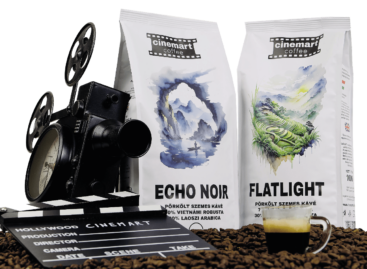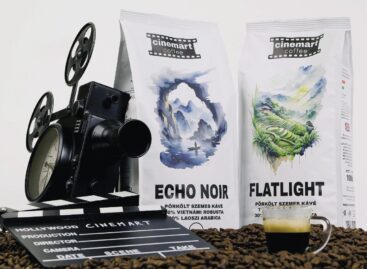Whole Foods packaged coffee
The specialty grocer owned by Amazon has seen sales rise as more consumers have turned to making their favorite caffeinated drinks at home.
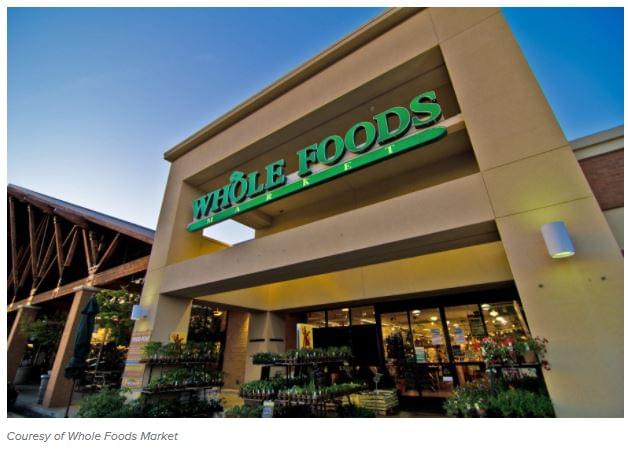
GroceryDive shelved “On Special” a little less than a year ago as the pandemic upended store operations and category sales became unpredictable. Now that business has stabilized and the chief editor can see the end of the COVID-19 crisis on the horizon, it feels like a good time to bring back this merchandising spotlight.
They’re rebooting the series with a look at Whole Foods’ packaged coffee assortment. Sales have risen as more consumers work from home, and the specialty grocer has taken steps to further capitalize by refreshing its private label coffee assortment. . It’s also gotten a boost from a certain TikTok video.
Morning routines
Whether its cold brew or drip, espresso or instant coffee, shoppers’ morning routines have shifted as more people work from home, with many investing in pricey appliances that signal a long-term shift to at-home brewing. This has been good news for the packaged coffee industry, which has seen year-over-year sales gains along with other center store departments. It’s also provided a much-needed lift to Whole Foods, whose roots in organic, specialty coffee run deep. Dark and medium ground coffee has led the way in sales for Whole Foods recently, category merchant Julie Bandin said. But shoppers have also shown they’re willing to try new things like making cold brew and stirring up whipped coffee. Some notable changes in the grocer’s private label coffee, including a packaging rebrand, have also boosted sales.
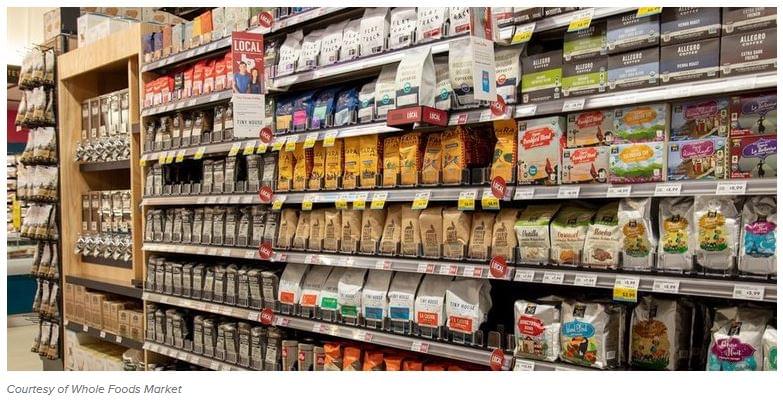
Large pack sizes and fair trade
large pack sizes, like 24-ounce bags and canisters of coffee, are selling particularly well as shoppers continue to consolidate trips and prioritize stock-up shopping.
Both fair trade and Rainforest Alliance certified coffees have posted double-digit sales growth at Whole Foods over the past year, according to a company spokesperson.
Driving that growth is a recently completed initiative to certify all store brand coffee, including Whole Foods 365 and Allegro, under at least one of those standards, which include benchmarks for worker treatment and environmental conservation. Bandin said the push had been ongoing for some time but ramped up in 2019, and included working closely with suppliers to complete the process amid the pandemic.
The initiative reflects the popularity of ethical and sustainability standards among Whole Foods customers. According to a 2019 report from the Natural Marketing Institute, the chain’s customers are twice as likely as average consumers to buy fair trade products.
Private label innovation
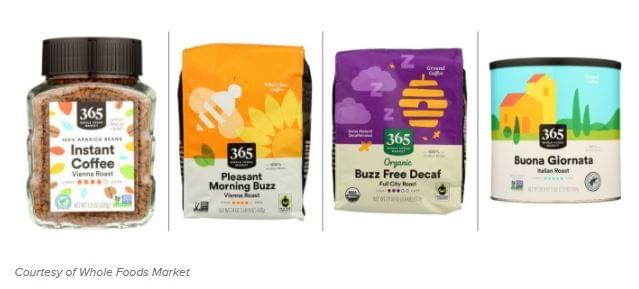
In addition to the new third-party certifications, Whole Foods has seen sales volumes increase with the redesign of its 365 private label packaging throughout the store. Unveiled last year, the label refresh was the first in several years and incorporated a “whimsical personality” and a “clean, colorful aesthetic,” according to the company.
Whole Foods recently revised its standards for eggs, including private label, to go “beyond cage-free” and source from farms that allow hens outdoor access and room to roam. By the end of this year, the grocer will also feature fair trade or Rainforest Alliance certification across its private label packaged tea portfolio.
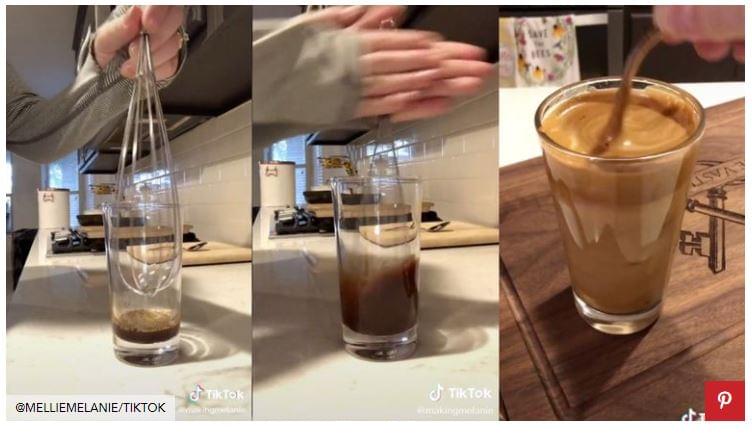
A TikTok video showing viewers how to make “dalgona coffee” quickly went viral last spring, prompting recipe sites across the internet to offer their own version of the dessert drink, which requires whipping instant coffee with sugar and water.
The craze offered something new for pandemic-frazzled consumers. And it significantly boosted sales of instant coffee at Whole Foods.
Related news
Experience instead of routine
🎧 Hallgasd a cikket: Lejátszás Szünet Folytatás Leállítás Nyelv: Auto…
Read more >Related news
MOHU: 5,200 return points are in operation, but 47 larger settlements still do not have RE points – public “enema” machines may be introduced
🎧 Hallgasd a cikket: Lejátszás Szünet Folytatás Leállítás Nyelv: Auto…
Read more >

